How to Choose the Best 100 Gallon Sprayer Tank for Your Needs
Choosing the right 100 gallon sprayer tank is crucial for anyone looking to achieve optimal efficiency and performance in their spraying tasks. Whether you are a farmer, landscaper, or DIY enthusiast, selecting a sprayer tank that meets your specific needs can significantly impact the quality of your work. With a variety of options available on the market, ranging from chemical compatibility to pump types and mounting styles, it is essential to understand the key factors that will influence your decision-making process. This guide aims to help you navigate the complexities of choosing the best 100 gallon sprayer tank by highlighting important features, offering practical tips, and ensuring that you make an informed choice that aligns with your spraying requirements. By considering your unique application needs and budget, you can find the perfect sprayer tank that enhances productivity and delivers great results.
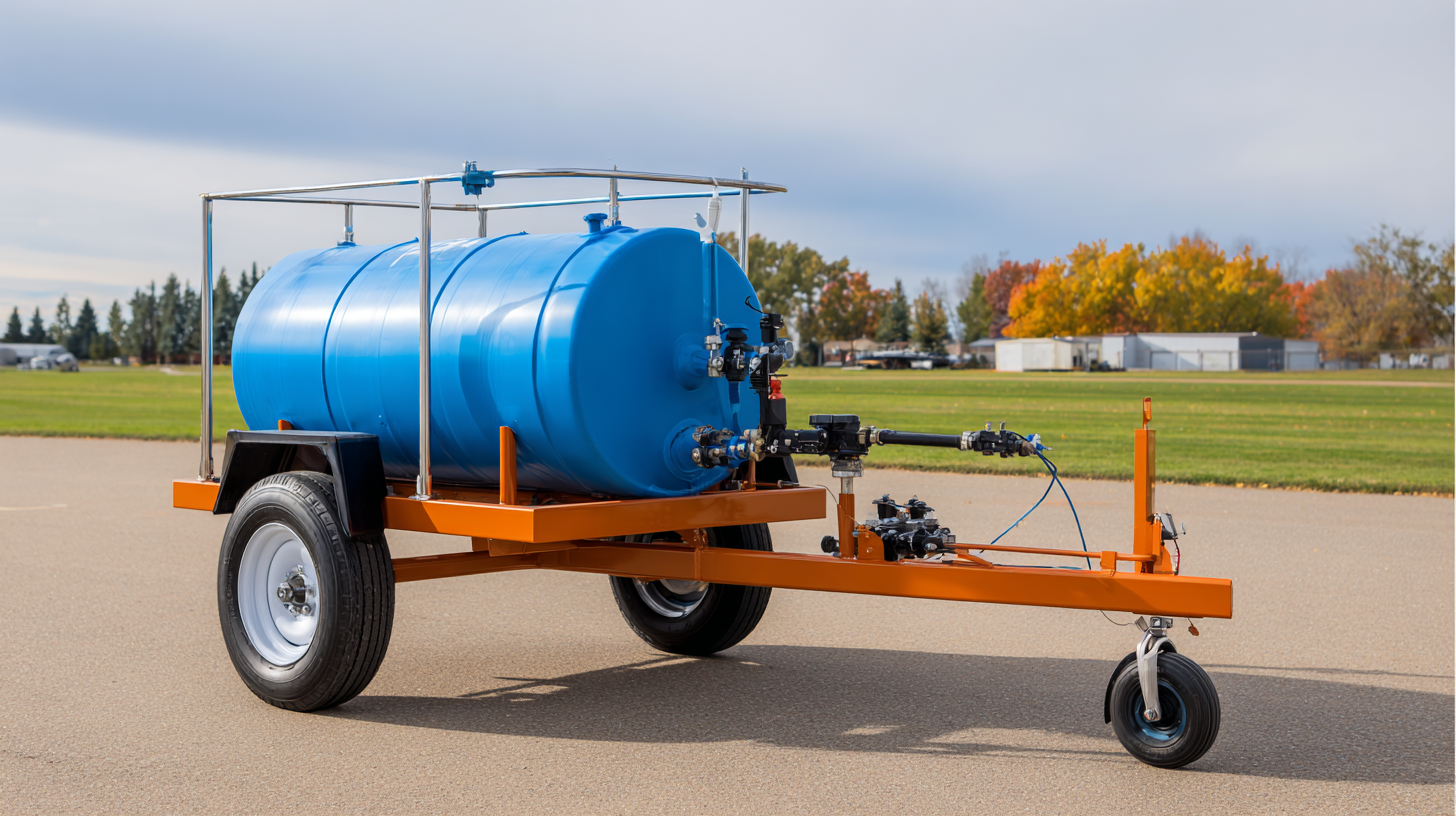
Understanding the Types of 100 Gallon Sprayer Tanks Available in the Market
When choosing the best 100-gallon sprayer tank, it’s crucial to understand the different types available on the market. You may encounter options such as pull-type sprayers, which are gaining popularity, especially in regions like the Canadian prairies. These sprayers are designed for both large-scale application and efficiency, providing a fine balance between application quality and timeliness. The advancements in design make them suitable for various agricultural tasks, making them a worthy consideration for any farmer.
When selecting a sprayer tank, consider the type of tasks you'll be performing. If you're focused on fertilizing, pest elimination, or weed control, look for sprayers that combine ease of use with effective functionality. Additionally, it's important to evaluate the build quality and features such as pressure control and nozzle types suited for different applications.
**Tips:** Always test the sprayer before purchasing to ensure it meets your specific needs. Evaluate its compatibility with your agricultural equipment and check for any user reviews regarding its efficiency and reliability. Investing time in research will help you choose a sprayer that enhances productivity and delivers optimal results in your fieldwork.
Comparison of Different Types of 100 Gallon Sprayer Tanks
This chart compares the weight of different types of 100 gallon sprayer tanks available in the market. Understanding the weight of each type can help you determine the best option for your specific needs.
Key Features to Consider When Selecting a 100 Gallon Sprayer Tank
When selecting a 100 gallon sprayer tank, several key features should be taken into account to ensure it meets your needs effectively. First and foremost, consider the tank material. A high-density polyethylene tank is typically preferred for its durability and resistance to various chemicals. Additionally, check the tank’s design for stability; a low center of gravity is beneficial for safe transportation, especially when full.
Another important aspect is the sprayer's pump system. Opt for a sprayer with a reliable pump that provides the necessary pressure and flow rate for your specific applications. Look for models with adjustable pressure settings, which can enhance versatility for different tasks, from agricultural spraying to pest control. Finally, consider the ease of use, including features like a comfortable handle and lightweight construction, which can significantly improve maneuverability and reduce fatigue during prolonged use.
How to Choose the Best 100 Gallon Sprayer Tank for Your Needs
| Feature | Description | Importance |
|---|---|---|
| Material | Common materials include polyethylene and steel, affecting durability and chemical resistance. | High |
| Pump Type | Different pumps (diaphragm vs. piston) vary in flow rate and pressure, impacting application effectiveness. | High |
| Compatibility | Tank should be compatible with chemicals intended for use to avoid corrosion or degradation. | Critical |
| Capacity | Ensure the capacity (100 gallons) meets your application needs without excessive refilling. | Medium |
| Weight | Consider the tank weight when full; heavier tanks may require different transport options. | Medium |
| Accessories | Look for tanks that come with additional fittings, hoses, and nozzles. | Low |
| Ease of Cleaning | Features like wide openings or smooth surfaces can facilitate maintenance. | Medium |
Evaluating Material Durability and Maintenance Requirements for Sprayer Tanks
When selecting a 100-gallon sprayer tank, evaluating the material durability is crucial for ensuring long-term performance and reliability. Common materials used in sprayer tanks include polyethylene, fiberglass, and stainless steel, each offering distinct advantages. According to a industry report by the Agricultural Engineering System (AES), polyethylene tanks are lightweight and resistant to corrosion, making them ideal for agricultural applications. Their cost-effectiveness contributes to their popularity, yet they may not withstand extreme temperatures or harsh chemicals as proficiently as fiberglass or stainless steel variants.
Fiberglass tanks, on the other hand, excel in durability and can often handle a broader range of chemicals without degrading. A recent study published in the Journal of Agricultural Safety and Health highlighted that fiberglass tanks can last up to 20 years when properly maintained. Maintaining these tanks, however, involves routine inspections to prevent potential damage from UV exposure or chemical reactions. Stainless steel tanks offer unparalleled durability, often resistant to both corrosion and heat, but at a higher price point. According to industry trends, the decision ultimately hinges on assessing the specific environmental conditions and chemical usage, balancing the initial investment against maintenance needs to find the best tank for individual needs.
Assessing Sprayer Tank Compatibility with Your Equipment and Use Cases
When selecting the best 100-gallon sprayer tank, it's critical to assess how well the tank fits with your existing equipment and the specific use cases you have in mind. Compatibility involves not only the physical attributes of the tank, such as fittings and connectors, but also how the tank interacts with the materials being sprayed. Consideration of the chemicals or biopesticides used is essential, particularly regarding their viability under various conditions.
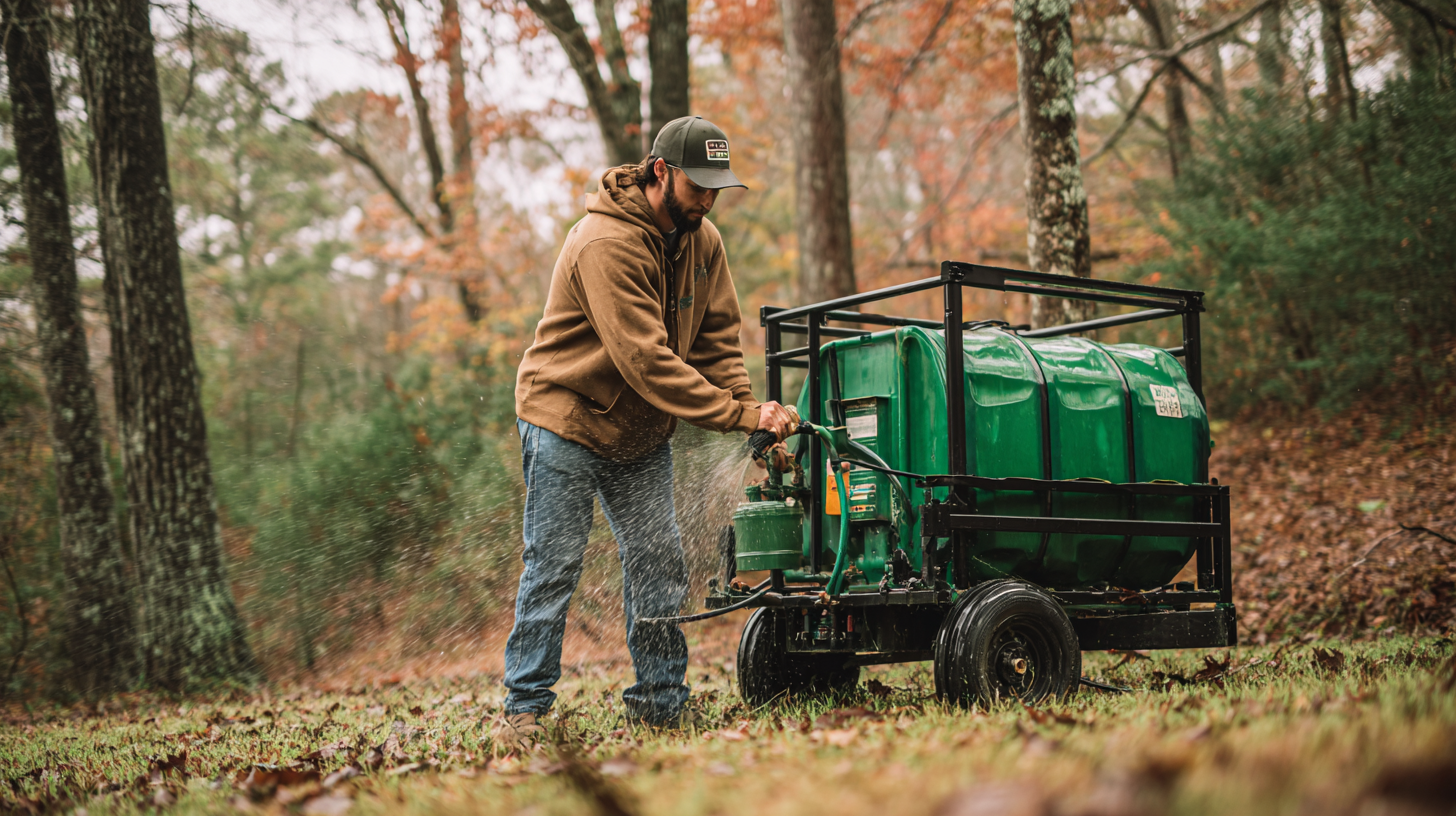
Recent studies highlight the importance of temperature control in sprayer tanks, particularly in relation to microbial biocontrol agents (BCAs). The findings indicate that residual amounts of the spray mixture in the tank can influence the temperature increase rate. For optimal performance of BCAs, maintaining temperatures below 35°C is crucial, as higher temperatures may render these biocontrol agents ineffective. Therefore, when choosing a sprayer tank, it's essential to ensure that it allows for effective temperature management to preserve the efficacy of the solutions being applied.
Budgeting: How to Balance Quality and Price for a 100 Gallon Sprayer Tank
When choosing a 100-gallon sprayer tank, balancing quality and price is essential. Understanding your budget constraints often influences your options, but it's crucial to look beyond just the cost. The effectiveness of the sprayer can significantly impact your herbicide application. With inflation and tight supplies contributing to higher herbicide prices, investing in a durable, efficient tank can save money in the long run. A reliable tank helps ensure proper adjuvant use, thereby enhancing herbicide effectiveness and preventing costly mistakes that arise from potential volume discrepancies.
Quality should never be compromised, especially when considering how tank capacity can affect herbicide concentration. For instance, if a tank does not hold the stated volume, it could lead to unintended consequences in your spraying regimen. Additionally, choosing a tank with a good reputation for handling various chemicals can mitigate issues related to compatibility and cleaning. Ultimately, a well-balanced decision should prioritize both performance and cost, ensuring that the sprayer meets your specific agricultural or gardening needs without overspending.
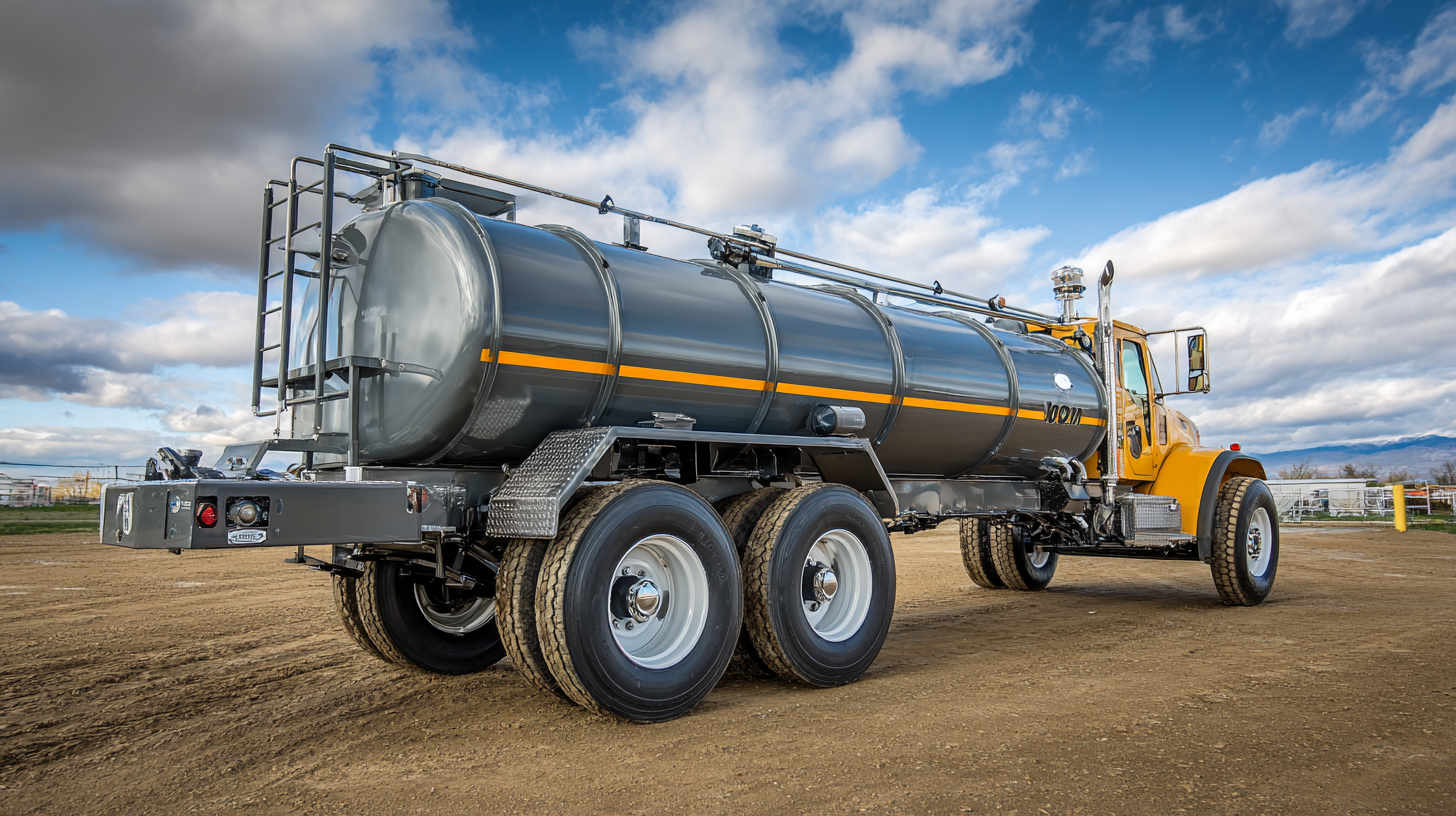
Related Posts
-

7 Effective Tips for Choosing the Right UTV Sprayer Boomless for Your Needs
-
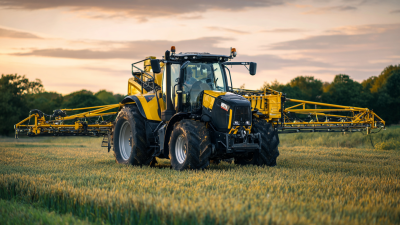
7 Best Boom Sprayers for Tractors to Boost Your Farming Efficiency
-

Innovative Tractor Sprayer Technologies Transforming Global Agriculture Efficiency
-

Ultimate Spot Sprayer Buying Guide: How to Choose the Right Equipment for Your Needs
-
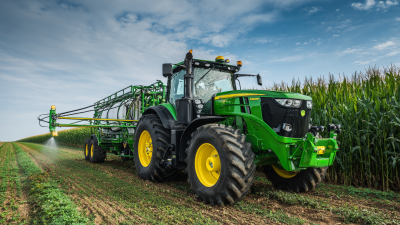
7 Best Boom Sprayers for Tractor that Enhance Crop Yields by 30 Percent
-

Innovative Solutions for Efficient Trailer Sprayer Applications